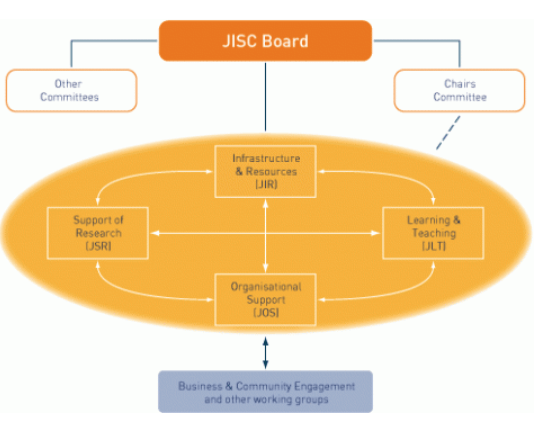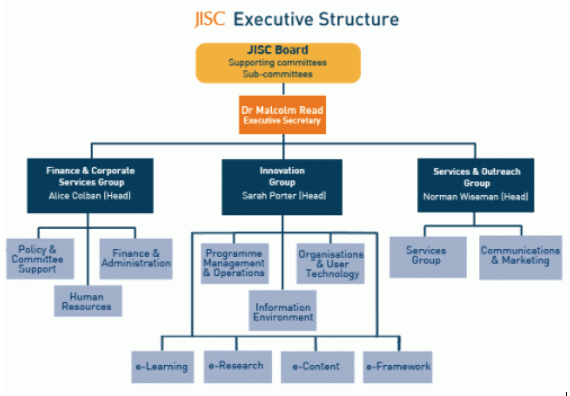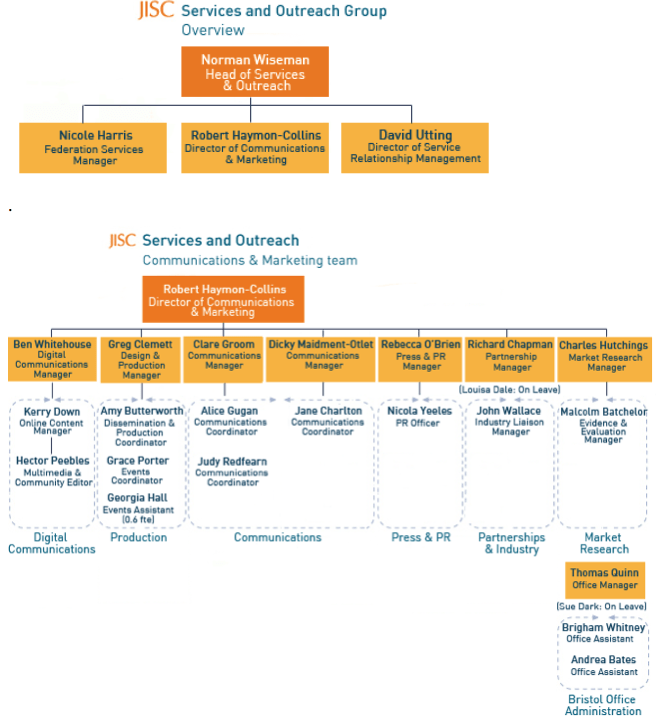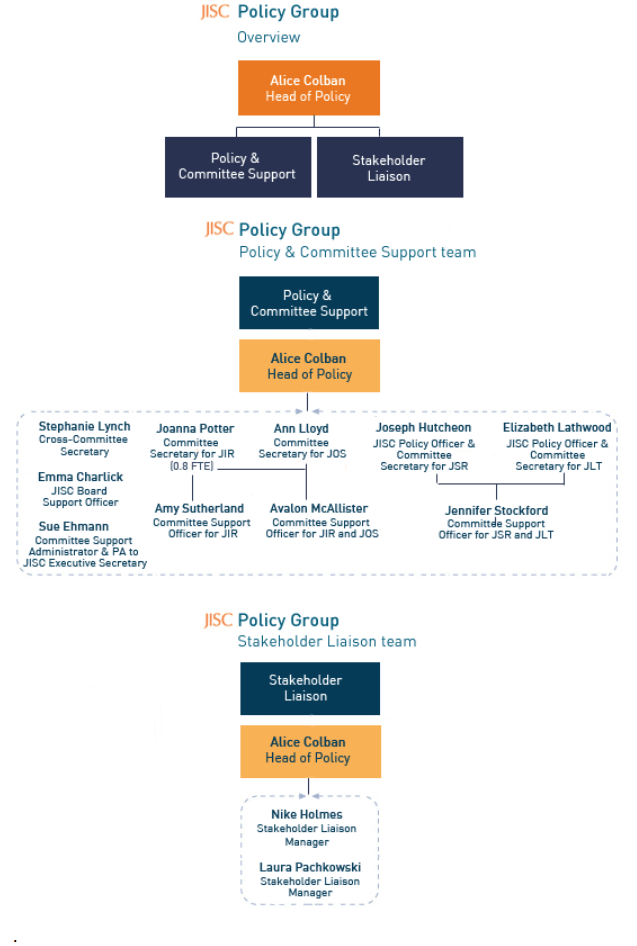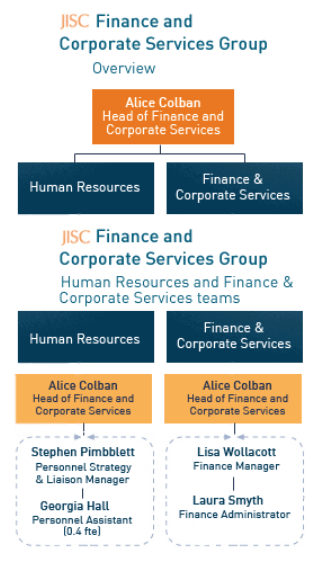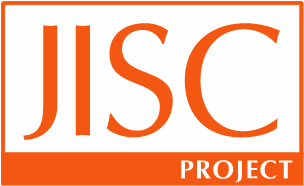
Here we have a very important body determining the education of our children, used within the virtual environment within Internet2 called; ‘it’s learning,’ welcome to JISC.
This JISC is being promoted by one of the virtual environment service providers Intute, which says of itself :
 Intute is a free online service providing you with a database of hand selected Web resources for education and research. The subject areas covered are : Arts and Humanities, Health & Life Sciences, Science, Engineering & Technology and Social Sciences.
Intute is a free online service providing you with a database of hand selected Web resources for education and research. The subject areas covered are : Arts and Humanities, Health & Life Sciences, Science, Engineering & Technology and Social Sciences.
 Another online service provider we find within the education virtual environment ‘it’s learning’ is BUBLE. This one has my antenna vibrating on account it has its root in Strathclyde University, Strathclyde is perhaps the most powerful Masonic controlled areas in the United Kingdom, the police force is involved in many lone shooting events, always implicated in paedophile ring cover up, and Strathclyde police are by far the most overbearing force when it comes to policing….so I am seeing data collection on a massive scale with BUBLE. We also have a great interview with Natalie Bracht in which she exposes a massive Zionist network operating out of Sunderland, with social security connections in Glasgow, in fact they run Glasgow social services. The mix of people named are Sir Jeremy Beecham, David Abrahams, and professor Robert Ash.
Another online service provider we find within the education virtual environment ‘it’s learning’ is BUBLE. This one has my antenna vibrating on account it has its root in Strathclyde University, Strathclyde is perhaps the most powerful Masonic controlled areas in the United Kingdom, the police force is involved in many lone shooting events, always implicated in paedophile ring cover up, and Strathclyde police are by far the most overbearing force when it comes to policing….so I am seeing data collection on a massive scale with BUBLE. We also have a great interview with Natalie Bracht in which she exposes a massive Zionist network operating out of Sunderland, with social security connections in Glasgow, in fact they run Glasgow social services. The mix of people named are Sir Jeremy Beecham, David Abrahams, and professor Robert Ash.
Full Interview Here
Strathclyde University works with many partnerships, one that caught my eye was SCURL, Scottish Confederation of University and Research Libraries.
 SCURL is directly funded by JISC, the board of directors gives insight to high level involvement with this operation, collecting data and steering the knowledge and information the students get access to, when one visits the virtual environment the most striking aspect is the amount of ‘surveys’ the students are expected to complete, some voluntary some mandatory, and very personal in their form.
SCURL is directly funded by JISC, the board of directors gives insight to high level involvement with this operation, collecting data and steering the knowledge and information the students get access to, when one visits the virtual environment the most striking aspect is the amount of ‘surveys’ the students are expected to complete, some voluntary some mandatory, and very personal in their form.
All such criteria is the direct result of the Foundations-charities, getting a foothold into education in the US, which has become the blueprint form of infiltration globally, not just in education but throughout our civil and political system, Common Purpose, Teach First, etc, all charitable trusts, answerable to no-one yet all connected at high level, all working to the same doctrine.
This has been the perfect way in which to prepare the UK to go along and act under the Contingency dictate, which is now operational and continues to be tested and drilled across the nation. The telling aspect to what today must be called Corporate Crown Control is found within the board of Trustees :
Chairman
Professor Michael Anderson, OBE, MA, PhD, FBA, FRSE
Ex-officio
The Lord President of the Court of Session
The Lord Advocate
The First Minister, Scottish Parliament
The Member of the Scottish Parliament for Edinburgh Central
The Dean of the Faculty of Advocates
The Minister of the High Kirk (St Giles’), Edinburgh
The Crown Agent
The Lord Provost of Aberdeen
The Lord Provost of Dundee
The Lord Provost of Edinburgh
The Lord Provost of Glasgow
Appointed by the Crown
Professor Michael Anderson, OBE, MA, PhD, FBA, FRSE
Andrea M Batchelor
Lorraine Fannin, OBE, BA, DipEd
Dr Willis Pickard
And the main operative in the form of development and finance-investment we find a very exposed family; Lady Balfour of Burleigh.
Full Board
The problem for the schools is they have no choice as to what they have forced upon them in the world of IT, there would seem to be choice yet it is a choice of only a selection which all have many affiliations in common at the controlling level.
JISC Says Of Itself :
Who We Are
JISC Board and its sub-committees are senior managers, academics and technology experts working in UK further and higher education. These experts determine JISC’s programme of work to reflect the present and future needs of the education and research communities.
The JISC Executive support the committees and assist with determining policy and deliver JISC’s programme of work through innovation Programmes and JISC-funded Services
A Steering committee (made up of officers from each funding body) provides advice to the JISC Chairman and JISC Executive. 3 advisory committees also support the JISC board: Audit committee, Nominations committee and Remuneration committee. Here
What We Do
JISC is funded by the UK HE and FE funding bodies to provide world-class leadership in the innovative use of ICT to support education and research.
JISC manages and funds more than 200 projects within 24 programmes. Outputs and lessons are made available to the HE and FE community.
JISC also supports 48 Services that provide expertise, advice, guidance and resources to address the needs of all users in HE and FE. Here
Strategic partners
JISC’s strategic partners are publicly funded organisations with a national remit to support ICT for education and research. JISC works in formal partnership to deliver the aims and objectives of the JISC Strategy.
Becta (British Education and Communications Technology Agency), UK
British Library
Higher Education Academy (The Academy), UK
Associate partners
Organisations focused on specific issues related to provision of ICT for education and research. Associate partners are likely to be membership led or professional associations.
Digital Library Federation (DLF), USA
Association for Learning Technology (ALT), UK
UCAS UK
International partners
Non-UK based organisations with a national remit supporting ICT for education and research.
Department of Education, Employment and Workplace Relations (DEEWR) Australia
Internet2 USA
SURF Foundation The Netherlands
Ministry of Education New Zealand
JISC Constitution And Funding Arrangements
Establishment and principles
The Further and Higher Education Act 1992 established the Higher Education Funding Council for England, the Higher Education Funding Council for Wales, and the Scottish Higher Education Funding Council (the Councils). It contains provision for two or more Councils to exercise jointly any of their functions where it appears to them to do so would be more efficient or would enable them more effectively to discharge any of their functions (Part III, 78). Letters of guidance of 30 April 1992 from the Secretaries of State to the HEFCs invited the three HEFCs to establish a Joint Committee to deal with networking and specialist information services, and gave the Councils leave to decide the basis for funding the Committee and whether or not it should take on other tasks.
In March 1993, the three Councils agreed the formation of a Joint Information Systems Committee (JISC), and provided the following guidelines for activities which it could perform:
There should be a national dimension to the activity
The activity should be technologically based
The JISC involvement should demonstrably add value beyond that which could be achieved by institutions acting individually or collectively
The activity could not be performed as well and more appropriately by institutions or by another body
The Councils additionally agreed that the JISC should exercise vision and leadership in bringing about developments which are for the benefit of the sector as a whole and in the national interest, but where mechanisms do not exist to make that provision. In principle, having set mechanisms in place and having launched an activity, the JISC should consider withdrawing in due course, leaving the mechanism and the activity in the hands of the institutions collectively; or else it should consider moving to full cost recovery for that activity. It may not always be possible to achieve this, but in principle an exit strategy should be part of any JISC proposal.
Northern Ireland
In January 1995, the Department of Education Northern Ireland (DENI) and the existing partners agreed that the DENI should become a full partner in the JISC as from April 1995, and should nominate one additional JISC member.
Follett report
In 1999, the Further Education Funding Council for England agreed to become full partners of the JISC. In the light of this expansion of membership, it was agreed by all partners that there should be a review of the governance structure of the JISC in order to ensure it fully met the needs of the Teaching and Research communities. The review was carried out by Sir Brian Follett.
The Follett Report did not recommend any significant changes to the role or remit of JISC but subsequent discussion with funding council assessors was helpful in clarifying future requirements. The Terms of Reference were updated to reflect wider developments such as the Research Grid and the creation of the LSC.
The following diagram illustrates the JISC committee structure :
JISC Board Members
Member Name Member Type
Professor Sir Timothy O’Shea Chair
Professor David Baker Deputy Chair
Ms Alison Allden Member
Mr Alun Hughes Member
Mr Brian Doran Member
Professor Cliff Allan Member
Mr David Finch Member
Professor Douglas Kell Member
Mr Dugald Mackie Member
Mr Ian Russell Member
Professor Jeff Haywood Member
Professor John Wood Member
Mr Les Watson Member
Professor Malcolm Atkinson Member
Ms Maria Lee Member
Mr Martyn Harrow Member
Mr Paul Deane Member
Mr Tony Jakimciw Member
Mr David House Ex-Officio
Professor Derek Law Ex-Officio
Mr Roger McClure Ex-Officio
Dr Malcolm Read OBE Secretary
Ms Alice Colban Assistant Secretary
Ms Emma Charlick Assistant Secretary
A Steering Committee made up of officers from each funding body was established to provide advice to the Chairman and Executive on government and funding council priorities and expectations, funding issues, and general policy advice. Three supporting committees were also established : Audit; Nominations; and Remuneration.
Sub-Committees structure
The model of six sub-committees was recommended by the previous JISC committee and is in line with the JISC Strategy. It has been noted that these committees can be considered as of two types: strategy and policy committees that ensure the needs of a specific community (research, teaching, and management) are met; and functional committees concentrating on specific areas of work (networking, information environment, and content acquisition). This does not imply a hierarchical structure.
JISC Executive structure
The Follett report recommended a closer management of JISC staff by bringing together the Secretariat and Co-ordinators into a common JISC Executive. A clear distinction between facilitating policy determination and the management of JISC funded services and projects was also recommended. A further recommendation was to ensure adequate support to the sub-committees and to improve interworking between JISC services and committees.
The current JISC executive structure :
The roles of each Executive team are outlined below :
Policy and Corporate Services
The facilitation of policy and strategy for the JISC and its sub-committees
Supporting the JISC and its sub-committees and, where necessary, working groups. This includes:
arranging meetings: time, location, catering etc
preparing agendas and papers
taking minutes
Innovation
Directing innovation programmes as defined by the JISC
Helping to ensure coherence and integration between innovation programmes and funded services
Promoting collaboration with other organisations in furthering innovation programmes
Defining timescales, targets and outputs for innovation programmes
Ensuring the adoption of appropriate standards
Services and Outreach
Procurement of services and other resources
Placing and managing contracts
Negotiating service level agreements or performance indicators
Monitoring the performance of services against SLAs or other agreed performance indicators
Negotiating and managing charging and other external funding mechanisms
Support working groups and other committees as appropriate
Promotion of JISC and its services
Developing feedback mechanisms to inform JISC policy and its programmes of work
Ensuring the provision of JISC support activities
Ensuring the provision of advisory services, as defined by the JISC, to institutions
Liaison and collaboration with other organisations and agencies in the UK and abroad; promoting joint projects and initiatives where appropriate
Ensuring actions of meetings are carried out, whether directly or through delegation
Liaison with, and reporting to, funding bodies
Liaison with external organisations especially on policy and funding matters
Financial management of the JISC budget including; preparation of funding recommendations and policy advice on funding sources (e.g. charging)
Administrative support to the JISC Executive
Services and Outreach Group
Services team
Procure services and other resources
Place and manage contracts
Negotiate service level agreements or performance indicators
Monitor the performance of services against SLAs or other agreed performance indicators
Negotiate and manage charging and other external funding mechanisms
Support working groups and other committees as appropriate
Communications and Marketing team
Promote JISC and its services
Develop feedback mechanisms to inform JISC policy and its programmes of work
Ensure the provision of JISC support activities
Ensure the provision of advisory services, as defined by the JISC, to institutions
Liaise and collaborate with other organisations and agencies in the UK and abroad; promoting joint projects and initiatives where appropriate.
Policy and Finance & Corporate Services Groups
The role of these groups is to :
facilitate policy and strategy for the JISC and its sub-committees
support the JISC and its sub-committees and, where necessary, working groups by: arranging meetings; preparing agendas and papers; taking minutes
ensure actions of meetings are carried out, whether directly or through delegation
liaise with, and report to, funding bodies
liaise with external organisations especially on policy and funding matters
financial management of the JISC budget including; preparation of funding recommendations and policy advice on funding sources (e.g. charging)
administrative support to the JISC Executive
JISC
Funding Opportunities
JISC funds a wide range of infrastructure, services, innovative projects and studies. A large number of these originate from a successful response to a grant funding call (previously known as a JISC Circular), inviting eligible HE and FE institutions to bid for project funding. JISC also procures other activities (usually studies such as an evaluation or market research), through invitations to tender which are available to other organisations to bid against. Here
The committees oversee a number of Working Groups :
Committees
The current committee structure implemented during 2009 is described below following a review of JISC’s committee structure. Committee Review Report
JISC Board determines JISC’s programme of work to reflect the needs of the education and research communities
Sub-committees oversee specific areas of the JISC strategy on behalf of the JISC Board
Members handbook
Chairs committee discusses issues facing the sector and JISC of a cross-committee natureMembers handbook
Nominations committee approves new members for the sub-committees
Steering committee provides guidance on government and funding council priorities and expectations
Remuneration committee determines and reviews the salaries and terms and conditions of employment of senior staff
Audit committee considers the adequacy of risk management, control and governance within JISC
Working groups are set up by sub-committees to investigate specific issues or manage programmes
Here
Working Groups
Working groups are set up to look at and report on specific issues. They may come within the remit of one or more of the JISC’s committees.
Current Working Groups
Business & Community Engagement Advisory Group
Digital Libraries in the Classroom Peer Review Panel
Digitisation Advisory Group
e-Infrastructure Advisory Board
e-Framework Working Group
e-Learning Capital Programme Advisory Board
Information Environment Working Group
IPR Advisory Group
Jorum Steering Group
JOS Work Programme Sub Group
Learning and Teaching Practice Experts Group
National e-Books Project Advisory Board
Network Development Group
PALS Interoperability and Metadata
Repositories and Preservation Advisory Group
Scholarly Communications
Strategic Content Alliance (formerly Common information environment)
UK Access Management Federation Policy Board
Users & Innovation: Personalising Technologies Working Group
Virtual Research Environments Advisory Board
When their task is complete, working groups are disbanded. See disbanded working groups.
Here
081. Higher Education Funding Council JISC: advice letter 2009/10-2011/12 by lifeinthemix
Further Study
JISC Publications
Project Management Guidelines
JISC Freedom Of Information
Absolute Return for Kids (ARK)
Wilhelm Wundt, psychological programming of children
The Froebel Education Method and the Third Reich
